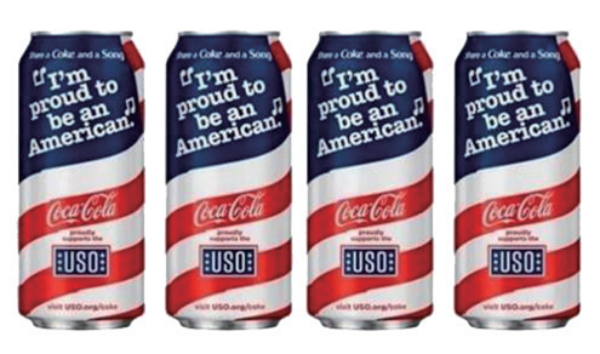This year, movies dealing with Korean history such as Operation Chromite and The Last Princess have been released, and achieved 7.05 million and 5.6 million audience members, respectively. These box office hits might be largely owed to film companies’ patriotic marketing. Meanwhile, according to a research conducted by Hankuk Ilbo, one of the Korean media, public opinion on not wanting to live in Korea if they were to be reborn marked a high figure. In other words, there is a gap between the success of patriotic marketing and the actual patriotism of citizens. The Sungkyun Times (SKT) explores patriotic marketing derived from chauvinism, and suggests the limits of patriotic marketing in movies and ways to proceed by introducing various cases.
Chauvinism, the Base of Patriotic Marketing
-What is chauvinism?
Patriotism, which many people are familiar with, is an emotional attachment to a nation that an individual recognizes as his or her homeland. The emotional attachment is not based on mysterious origins, but on socio-economic conditions, and develops as an affection towards a country, language, and culture. Different from patriotism, chauvinism is an ideology that emphasizes patriotism, often excessively, when it comes to defending a country. It has become prominent after the establishment of a centralized state and the development of capitalism.
-Why is chauvinism harmful?
One of the reasons chauvinism can be harmful is that it can be misused as a political tool. In modern history, there were many countries that justified dictatorship, nationalism, or fascism by utilizing the equation “country = nation = the public.” Chauvinism is used as an ideological tool for achieving specific goals of the ruling power of a nation and justifying political trickery to retain power. In other words, the privileged classes who have vested rights have forced the public to love their country through undemocratic ways, not allowing diversity of opinion.
Another reason is generational conflict, which arises whenever the interests or ideals of one generation collide with those of another. If the topic of conversation is about the country, the older generation and the younger generation go through disagreements in most cases. Since the backgrounds of each generation are different, the former mostly think that the sacrifice of an individual for the country can be justified, while the latter considers the relationship between the country and an individual to be a give-and-take sort of relationship. Professor Sang-jin Jeon of the Department of Sociology at Sogang University claims that the unconditional emphasis on patriotism brings about a deeper gap in a polarized society like today’s.
Chauvinism is also misused as a marketing tool. Many companies use chauvinism to maximize their profit, which is called patriotic marketing. Companies tap into the public’s universal emotion by appealing and inspiring patriotism, and attain the desired effect. For example, in the United States (US), Coca-Cola designed their product using the American flag in May, 2016 to pay tribute to the nation’s Armed Forces members. Furthermore, Budweiser, the most famous beer company in the US, named its product “America.” In addition, in Korea, a company named Bumyang launched their product, “Coke Independence 815,” in the late 1990s. When Korea was going through the International Monetary Fund crisis, the social atmosphere turned towards drinking “our” Coke, which brought “Coke Independence 815” 14% of the Coke market share.

Patriotic Marketing in Movies
Patriotic marketing is generally used in the movie industry since making movies which appeal to patriotism can draw a bigger audience. Movie consumers rely on advertisement and acquaintances’ recommendations when deciding what movie to see. This means that advertisements or related gossips about movies that appeal to patriotism can be easily shared among consumers. According to “Study on the Factors Affecting Box Office Performance of Korean Movies: Focused on Patriotism Factor” conducted by Jeong Min Ko, the Chief Researcher of Samsung Economic Research Institute, gossips passed on orally lead to favoritism, which is a negative concept, in movie markets.
One of the successful cases of patriotic marketing is the movie Captain America, an American film based on the Marvel Comics superhero made in 1979. It is now produced in series, but the first comic, which the movie was based on, was published in 1944 with the purpose of inspiring patriotism and encouraging Americans during World War Ⅱ. The armor that Captain America wears embodies the American flag, giving people the illusion that America itself is a hero. Captain America himself, however, often appears to be an arrogant and oppressive person, since he is a character that represents unconditional patriotism. In this way, even though patriotic marketing attracts many people to the theaters, it has clear shortcomings itself.
Limits of Patriotic Marketing in Movies and Ways to Proceed
There are some limits of patriotic marketing: decline in quality and controversies of chauvinism.
-Decline in Quality
Although products in a capitalist system should generally be judged by their quality, many enterprises send such a message: “If you love this country, watch this movie,” not considering the quality of the contents and forms of the movie. For example, the marketing strategy of D-War, a Korean movie produced by movie director Hyung-rae Shim in 2007, was “our” blockbuster film, different from those of Hollywood. The director included many patriotic factors in the movie. The main character was a Korean dragon, and the background music for the last scene was Arirang, a Korean folk song. Moreover, there were unnatural subtitles which emphasized patriotism after the movie was over. According to a research conducted by a movie portal named Max Movie, half of the surveyors (499 people) said that the scene where the Korean dragon rose to the sky while Arirang was playing moved them, apart from the technological completion of the movie. Although the patriotic factors made the movie a box office hit, some people pointed out that the movie lacked in plot. In other words, this case shows that many movie producers rely not on the cinematic quality of the movie, but on the external conditions of the movie.

- Controversies of Chauvinism
Patriotic marketed movies are naturally caught up in controversies regarding chauvinism. For instance, The Last Princess, a movie that tells the story of the last princess of the Joseon Dynasty, Dukhye, had many disputes. Some advocated for the movie because it made the public’s interest focus on a historical event. Others criticized it, claiming that the movie focused not on objective historical facts, but rather appealed to sentimentalism, meaning that there was a distortion of history. Another example is Operation Chromite, which is a movie about a military operation that caused a dramatic reversal during the Korean War. While some people argued that the movie helped people be aware of the hidden Korean heroes of the war, others criticized the quality and the objectivity of the movie. The critics emphasized that the movie was similar to anticommunist materials of the 1950s, depicting sacrifice of the Korean Army as sacred while depicting the North Korean Army as exaggeratingly vicious.

These two movies are in the midst of a controversy on whether they are good films which inspire patriotism, or poor ones which lost their objectivity by using patriotic marketing. -
-Ways to Proceed
Consumers are becoming more rational, meaning that patriotic marketing that unconditionally stresses blind patriotism while excluding the quality and not addressing the controversies would rouse the public’s antipathy and lose its power in today’s globalized society. Movie companies should further improve their products’ quality and service, and should not press people excessively to watch such patriotic marketed movies.
Patriotic marketing might be used as a means to make profits by deceiving citizens through excessive patriotism, which derives from chauvinism that forces to love one’s country. Therefore, it can be clearly seen that patriotic marketing is an outdated tradition. Companies, and by extension countries and leaders of society, must not force patriotism onto the citizens, but draw it from the citizens for themselves.
